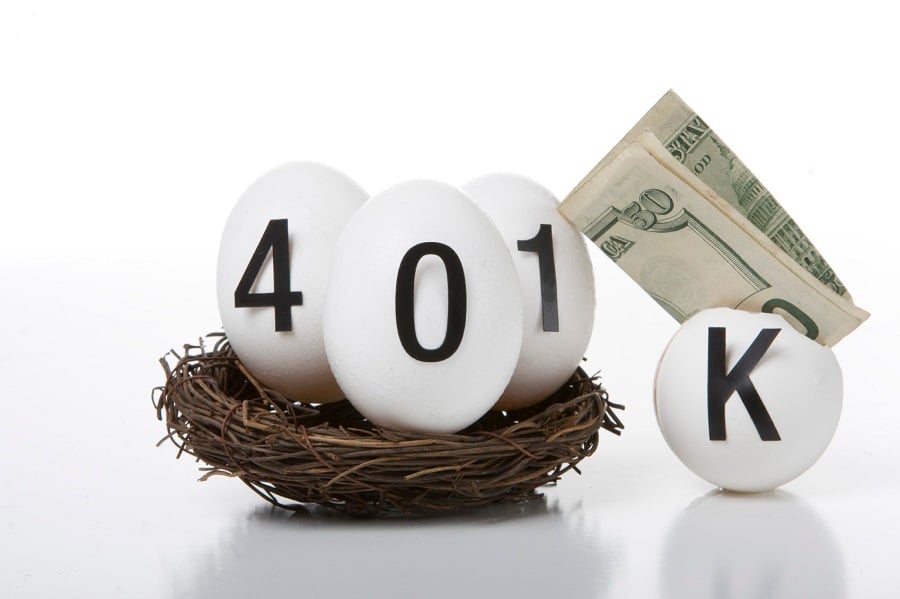

The government just made it easier for people to pull money out of their 401(k)s prematurely, but some retirement specialists are advising against that option as much as possible.
As part of the $2.2 trillion stimulus package, which President Donald Trump signed on Friday, people affected by COVID-19 will be eligible for penalty-free hardship withdrawals. Plan participants will also be able to borrow up to $100,000 from those accounts.
That relief will be a lifeline to people facing unemployment and potentially massive medical bills. But pulling money from retirement accounts early, especially in the current economy, can also be financially disastrous.
“Some people need the money, and this is one of the few sources of ready capital,” said Steve Parrish, adjunct professor of advanced planning at The American College of Financial Services. “People keep calling this a ‘stimulus’ bill – but I think it’s also a survival bill.”
Investors should consider pulling money from other sources before dipping into their retirement accounts, he noted. That could include taking out home-equity loans, borrowing from family or getting money from cash-value life insurance policies, he said.
Even accessing 401(k) assets through a loan is often a better option than an early withdrawal, as the money will eventually be paid back into the account, he said.
“Taking money out now, whether in a loan or a withdrawal, in one of the fastest and nastiest bear markets in recent history, may not be a great idea,” said Leon LaBrecque, chief growth officer at Sequoia Financial Group, in an email. “If you are invested in equities, you will likely be selling at a substantial discount … if the market just goes back to where it was, your loan or withdrawal may cost you 40-50%.”
For those who truly do need to access their 401(k) assets, dipping into the fixed-income portion is likely a better option than pulling money from stock-heavy funds, advisers said.
“One strategy in particular might be to draw on fixed income assets, leaving equity exposure intact to participate in the recovery when it happens,” said Charles Sachs, director of planning at Kaufman Rossin Wealth, in an email. “Then, once income returns, replace these withdrawals so one does not pay income tax on the withdrawals, and gets this money working again for retirement.”
The bill itself also hints that depleting retirement assets in the current market could be detrimental. A provision allows tax-qualified account holders to skip their required minimum distributions.
“It’s a way of the government also signaling, ‘We don’t want you to take the money out while the market is down,’” Parrish said.
For plan participants who are considering dipping into their 401(k)s, plan sponsors should tell them about the potential long-term consequences, he said.
“Employers have to be a little careful, because they can’t provide investment advice – but they have to let [participants] know this is a serious thing,” he said.
For employees who opt for 401(k) loans, a big consideration should be whether they are likely to have jobs in the near future, financial planner Daniel Galli said in an email.
Borrowers face “the huge risk of possibly having to pay off the entire loan early if laid off or leaving work for any reason (calling the note) and having to pay tax and possibly penalty,” Galli said.
Another hitch is that a 401(k) plan must include a loan provision in order for participants to borrow from their accounts, said Brian Ellenbecker, financial planner at Shakespeare Wealth Management, in an email.
“Plan loans should one of your last resorts when deciding where to pull money from when an unexpected need arises,” Ellenbecker said. “Plan loan repayments are made with after-tax dollars. Unfortunately, these dollars will be taxed again when they are withdrawn later on in retirement.”

Relationships are key to our business but advisors are often slow to engage in specific activities designed to foster them.

Whichever path you go down, act now while you're still in control.

Pro-bitcoin professionals, however, say the cryptocurrency has ushered in change.

“LPL has evolved significantly over the last decade and still wants to scale up,” says one industry executive.

Survey findings from the Nationwide Retirement Institute offers pearls of planning wisdom from 60- to 65-year-olds, as well as insights into concerns.
Streamline your outreach with Aidentified's AI-driven solutions
This season’s market volatility: Positioning for rate relief, income growth and the AI rebound
